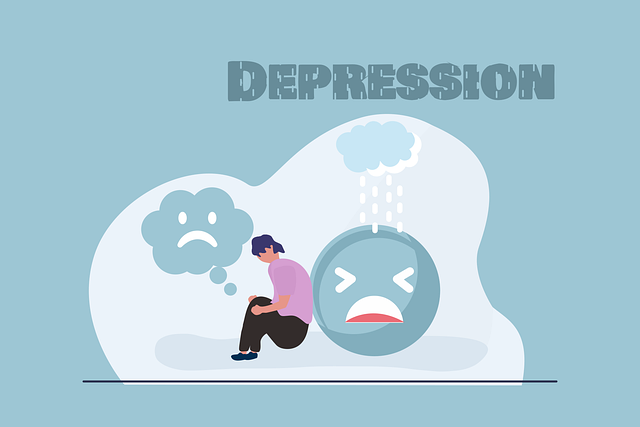Greenwood Village Child Abuse Therapy focuses on empowering children with emotion regulation skills to cope with trauma or abuse. Through risk assessments, tailored support, and evidence-based practices, they teach techniques like Mental Wellness Journaling and mindfulness exercises to help kids process experiences, develop healthy coping mechanisms, and promote overall mental wellness. By identifying triggers, fostering resilience, and emphasizing self-care, Greenwood Village aims to create lasting positive impacts on children's well-being and relationships.
Emotion regulation techniques are essential tools for children to navigate their feelings and build resilience. This article explores why mastering these skills is crucial for kids’ well-being, with a focus on Greenwood Village Child Abuse Therapy’s approach. We’ll delve into identifying emotional triggers, presenting various techniques to help children manage intense emotions, and emphasizing the importance of mindfulness and self-care. By understanding these concepts, parents and caregivers can foster healthier emotional development in children.
- Understanding Emotion Regulation: Why It's Crucial for Children
- Greenwood Village Child Abuse Therapy: An Overview
- Identifying Triggers: A Key Step in Teaching Emotion Regulation
- Techniques to Help Kids Manage Big Feelings
- Practicing Mindfulness and Self-Care for Better Emotional Health
Understanding Emotion Regulation: Why It's Crucial for Children

Emotion regulation is a vital skill for children to develop as it plays a significant role in their overall well-being and healthy development. Understanding and managing emotions effectively helps young individuals navigate their feelings, make better decisions, and foster positive relationships. This ability can be particularly challenging for children who have experienced trauma or are at risk of child abuse, as they may struggle with intense emotions and act out in harmful ways.
In Greenwood Village, Child Abuse Therapy services focus on teaching these crucial emotion regulation techniques to help children process their experiences and develop healthy coping mechanisms. Through specialized therapy sessions, mental health professionals conduct comprehensive risk assessments (a vital step in risk management planning for these cases) and offer tailored support, ensuring that children learn to identify and manage their emotions constructively, thereby reducing the potential for re-traumatization or further abuse. Trauma support services contribute significantly to breaking this cycle and promoting resilience in young minds.
Greenwood Village Child Abuse Therapy: An Overview

Greenwood Village Child Abuse Therapy centers on providing specialized support for children and families affected by abuse or trauma. These therapy services are designed to help young individuals process their experiences, develop healthy coping mechanisms, and promote overall mental wellness. By integrating evidence-based practices, therapists employ various techniques such as Mental Wellness Journaling Exercise Guidance to enhance emotional regulation skills in children. This approach empowers them to understand and manage their emotions effectively, fostering a sense of safety and resilience.
The therapeutic environment at Greenwood Village is meticulously crafted to be nurturing and supportive, ensuring cultural competency among healthcare providers. Regular training sessions focus on educating staff about the diverse needs of clients from different backgrounds, enabling them to offer tailored guidance. Through these comprehensive services, Greenwood Village strives to create a lasting positive impact on the lives of children and families, helping them rebuild and heal from the effects of abuse or trauma, thereby improving their emotional regulation capabilities and overall quality of life.
Identifying Triggers: A Key Step in Teaching Emotion Regulation

Identifying triggers is a fundamental step in teaching emotion regulation, especially for individuals dealing with complex emotions or traumatic experiences. At Greenwood Village Child Abuse Therapy, we recognize that understanding what sets off emotional responses is crucial for effective management. By recognizing and labeling specific situations, people, or environments that consistently trigger intense feelings, individuals gain valuable insight into their emotional patterns. This awareness allows them to develop coping strategies tailored to their unique triggers, fostering a sense of control over their emotions.
The process involves encouraging clients to reflect on their experiences and identify recurring themes or scenarios associated with heightened emotions. For example, someone struggling with anxiety might realize that crowded places trigger their anxiety symptoms. Once identified, these triggers can be addressed using various techniques, such as cognitive restructuring to challenge negative thoughts, mindfulness practices to stay grounded in the present moment, or deep breathing exercises to calm the body’s physical responses. Through this systematic approach, individuals learn to navigate their emotional landscape more effectively and cultivate resilience in the face of challenging situations, ultimately aiming for improved well-being and reduced distress, including anxiety relief.
Techniques to Help Kids Manage Big Feelings

Teaching children to manage their emotions is a vital skill that can serve them throughout their lives. At Greenwood Village Child Abuse Therapy, we understand the significance of equipping young minds with tools to navigate and regulate intense feelings. Our approach focuses on creating a safe and supportive environment where kids can learn to identify and express their emotions effectively.
Through various techniques tailored for children, we guide them in understanding triggers and developing healthy coping strategies. This may include mindfulness exercises, such as deep breathing or guided visualizations, which help calm the mind and body. Additionally, teaching children to recognize and label their feelings is a powerful step towards self-awareness. By encouraging open communication and providing age-appropriate resources, our programs foster resilience and promote better mental health, ultimately contributing to burnout prevention within the young population.
Practicing Mindfulness and Self-Care for Better Emotional Health

In today’s fast-paced world, emotional health is a cornerstone of overall well-being. Greenwood Village Child Abuse Therapy emphasizes the importance of practicing mindfulness and self-care as powerful tools for managing and regulating emotions. Mindfulness involves being fully present in the moment, observing thoughts and feelings without judgment, which can significantly reduce stress and anxiety. By incorporating mindfulness exercises like meditation or deep breathing into daily routines, individuals can cultivate a sense of calm and enhance their emotional resilience.
Self-care is another critical aspect that supports emotional health. This includes engaging in activities that nourish both the mind and body, such as regular exercise, healthy eating, adequate sleep, and hobbies that bring joy. At Greenwood Village Child Abuse Therapy, we understand that prioritizing self-care can boost confidence, improve social skills training, and foster empathy building strategies, ultimately leading to a more balanced and fulfilling life.
Emotion regulation techniques are a powerful tool for children’s well-being, as highlighted by Greenwood Village Child Abuse Therapy. By identifying triggers and employing practices like mindfulness and self-care, kids can learn to manage their emotions effectively. These skills not only enhance emotional health but also foster resilience, enabling children to navigate life’s challenges with greater ease. Understanding and implementing these techniques can significantly contribute to a child’s overall development and happiness.














